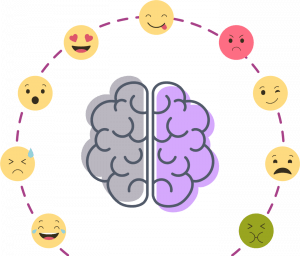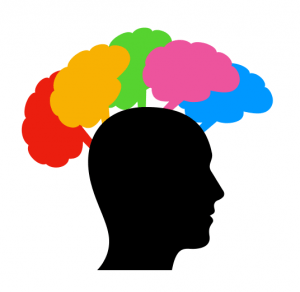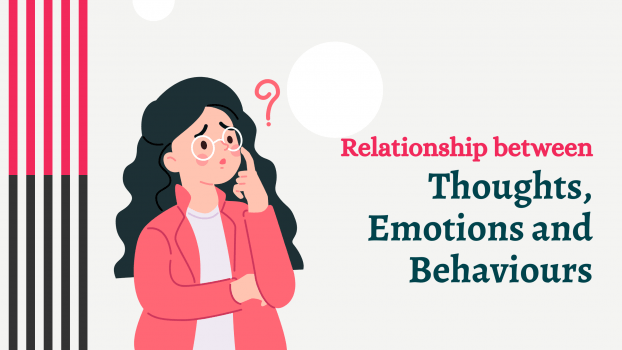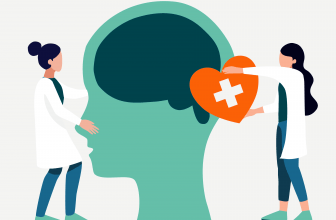Thoughts, emotions and behaviours are interconnected. Thoughts can lead to emotions, which in turn can lead to certain behaviours. In order to understand the relationship between thoughts, emotions and behaviours we need to begin by understanding each of them individually.
Understanding this relationship, we can work on modifying our thoughts, emotions and behaviours to improve our mental and emotional wellbeing.

Emotions
Emotions are feelings that are associated with particular thoughts or experiences. They can be happy, sad, angry, anxious, etc. Emotions can vary in intensity from mild to intense. When we experience strong emotions, it can be difficult to think straight. This is because emotions can affect the way we think and make decisions.
For example, if we are feeling angry, we might not be able to think logically or rationally. We might react impulsively or say things that we later regret.
Behaviours
Behaviours are the things we do as a result of our emotions. They can be physical, such as eating or drinking, or they can be verbal, such as yelling or cursing. Behaviours can also be passive, such as not doing anything, or they can be aggressive, such as hitting or pushing someone.
When we experience strong emotions, we often act on them without thinking. This can lead to behaviours that we might later regret. For example, if we’re feeling angry, we might yell or curse at someone. Or if we’re feeling sad, we might cry or isolate ourselves from others.
It’s important to understand our behaviours and how they’re related to our emotions. If we can identify the emotions that lead to certain behaviours, we can work on managing our behaviours by managing our emotions better. This can help us to stay in control of our behaviour and avoid doing things we might regret.

Thoughts
Thoughts are the things we think about. They can be positive, such as I am a good person, or negative, such as I am a terrible person. Thoughts can also be neutral, such as I am having a coffee. Thoughts can be fleeting or they can be more persistent.
What is the relationship between thoughts, emotions and behaviours?
Thoughts and emotions are intricately related, as thoughts can often lead to strong emotional reactions. The way we think about things can directly impact how we feel, and vice versa.
For example, if you experience a lot of stress at work, you might start to feel very anxious and tense all the time. This anxiety could then lead to negative thoughts, such as believing that you’re not good enough or that you’ll never be able to handle the stress. These thoughts will only serve to reinforce your emotional state and make it even harder to break out of.
Alternatively, if you have a positive outlook and believe that you can handle whatever comes your way, you’ll likely be less stressed and more confident in your abilities. This confidence will then lead to happier thoughts and emotions.
In short, our thoughts have a powerful influence on our emotions, which in turn dictate our behaviour.
How to manage your thoughts and emotions?
There are a number of ways that you can manage your thoughts and emotions.
One approach is to practise self-care. Mindfulness activities in combination with thought records can help you become aware of your thoughts and emotions. Introspection can help you explore the connection between thoughts and emotions. Techniques like when-then statements and NLP SWISH can help you restructure your thoughts.
Another approach is to seek therapy. In therapy, you will be able to understand your emotions, become aware of your thoughts, explore the causes of the current issues and overcome the underlying causes that will lead to more positive thoughts and emotions.
If you would like to connect with a therapist who can help you manage your thoughts and emotions, click here








